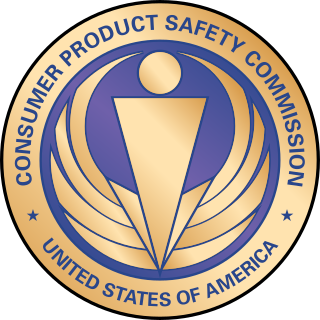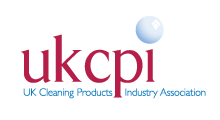
The Food and Drug Administration is a federal agency of the United States Department of Health and Human Services, one of the United States federal executive departments. The FDA is responsible for protecting and promoting public health through the control and supervision of food safety, tobacco products, dietary supplements, prescription and over-the-counter pharmaceutical drugs (medications), vaccines, biopharmaceuticals, blood transfusions, medical devices, electromagnetic radiation emitting devices (ERED), cosmetics, animal foods & feed and veterinary products. As of 2017, 3/4th of the FDA budget is paid by people who consume pharmaceutical products, due to the Prescription Drug User Fee Act.

Agfa-Gevaert N.V. (Agfa) is a Belgian-German multinational corporation that develops, manufactures, and distributes analogue and digital imaging products and systems, as well as IT solutions. The company has three divisions. Agfa Graphics offers integrated prepress and industrial inkjet systems to the printing and graphics industries. Agfa HealthCare supplies hospitals and other care organisations with imaging products and systems, as well as information systems. Agfa Specialty Products supplies products to various industrial markets. It is part of the Agfa Materials organization. In addition to the Agfa Specialty Products activities, Agfa Materials also supplies film and related products to Agfa Graphics and Agfa HealthCare.
A biocide is defined in the European legislation as a chemical substance or microorganism intended to destroy, deter, render harmless, or exert a controlling effect on any harmful organism by chemical or biological means. The US Environmental Protection Agency (EPA) uses a slightly different definition for biocides as "a diverse group of poisonous substances including preservatives, insecticides, disinfectants, and pesticides used for the control of organisms that are harmful to human or animal health or that cause damage to natural or manufactured products". When compared, the two definitions roughly imply the same, although the US EPA definition includes plant protection products and some veterinary medicines.

The United States Consumer Product Safety Commission is an independent agency of the United States government. The CPSC seeks to promote the safety of consumer products by addressing "unreasonable risks" of injury ; developing uniform safety standards ; and conducting research into product-related illness and injury. In part due to its small size, the CPSC attempts to coordinate with outside parties—including companies and consumer advocates—to leverage resources and expertise to achieve outcomes that advance consumer safety. The agency was created in 1972 through the Consumer Product Safety Act. The agency reports to Congress and the President; it is not part of any other department or agency in the federal government. The CPSC has five commissioners, who are nominated by the president and confirmed by the Senate for staggered seven-year terms. Historically, the Commission was often run by three commissioners or fewer. Since 2009, however, the agency has generally been led by five commissioners, one of whom serves as chairman. The commissioners set policy for the CPSC. The CPSC is headquartered in Bethesda, Maryland.

Air fresheners are consumer products that typically emit fragrance and are used in homes or commercial interiors such as restrooms, foyers, hallways, vestibules and other smaller indoor areas, as well as larger areas such as hotel lobbies, auto dealerships, medical facilities, public arenas and other large interior spaces. There are many different methods and brands of air fresheners. Some of the different types of air fresheners include electric fan air fresheners, gravity drip hygiene odor control cleaning systems, passive non-mechanical evaporating aroma diffusers, metered aerosol time-operated mist dispensers, sprays, candles, oils, gels, beads, and plug-ins. Some air fresheners contain chemicals that provoke allergy and asthma symptoms or are toxic. Air freshening is not only limited to modern day sprays, air freshening also can involve the use of organic and everyday house hold items. Although air fresheners are primarily used for odor elimination, some people use air fresheners for the pleasant odors they emit.
The International Nomenclature of Cosmetic Ingredients, abbreviated INCI, is a system of names for waxes, oils, pigments, chemicals, and other ingredients of soaps, cosmetics, and the like, based on scientific names and other Latin and English words. INCI names often differ greatly from systematic chemical nomenclature or from more common trivial names.

The economy of Illinois is the fifth largest by GDP in the United States and one of the most diversified economies in the world. The Chicago metropolitan area is home to many of the United States' largest companies, including Allstate, Boeing, Caterpillar, Kraft Heinz, McDonald's, Motorola, United Airlines, Walgreens, and more. The Chicago area headquarters a wide variety of financial institutions, and is home to the largest futures exchange in the world, the Chicago Mercantile Exchange.

Cognis was a worldwide supplier of specialty chemicals and nutritional ingredients, headquartered in Monheim am Rhein, North Rhine-Westphalia, Germany. The company employs about 5,600 people and operates production or service centers in almost 30 countries. Cognis was acquired by BASF in 2010.
NCH Corporation is an international marketer of maintenance products. It is one of the largest companies in the world to sell such products through direct marketing channels. NCH has several wholly owned subsidiaries, some of them in the maintenance products business.

The Food Quality Protection Act (FQPA), or H.R.1627, was passed unanimously by Congress in 1996 and was signed into law by President Bill Clinton on August 3, 1996. The FQPA standardized the way the Environmental Protection Agency (EPA) would manage the use of pesticides and amended the Federal Insecticide, Fungicide, and Rodenticide Act and the Federal Food Drug and Cosmetic Act. It mandated a health-based standard for pesticides used in foods, provided special protections for babies and infants, streamlined the approval of safe pesticides, established incentives for the creation of safer pesticides, and required that pesticide registrations remain current.

Household hazardous waste (HHW), sometimes called retail hazardous waste or "home generated special materials', is post-consumer waste which qualifies as hazardous waste when discarded. It includes household chemicals and other substances for which the owner no longer has a use, such as consumer products sold for home care, personal care, automotive care, pest control and other purposes. These products exhibit many of the same dangerous characteristics as fully regulated hazardous waste due to their potential for reactivity, ignitability, corrosivity, toxicity, or persistence. Examples include drain cleaners, oil paint, motor oil, antifreeze, fuel, poisons, pesticides, herbicides and rodenticides, fluorescent lamps, lamp ballasts, smoke detectors, medical waste, some types of cleaning chemicals, and consumer electronics.

SOCMA, the Society of Chemical Manufacturers and Affiliates, is an international trade association that represents the interests of the batch, custom and specialty chemical industry. According to the organization’s charter, SOCMA's stated mission is to "accelerat[e] the potential for members' growth," "increase[e] public confidence in the batch, custom and specialty chemical industry," and "influenc[e] the passage of rational laws and regulations."

The California Department of Pesticide Regulation, also known as DPR or CDPR, is one of six boards and departments of the California Environmental Protection Agency (Cal/EPA).

The UK Cleaning Products Industry Association is the leading trade association for companies representing UK producers of cleaning and hygiene products. This includes soaps, washing powders and liquids, household disinfectants, air care and polishes, as well as professional cleaning and hygiene products used in industrial and institutional applications.

Sumitomo Chemical Co., Ltd. is a major Japanese chemical company. The company is listed on the first section of the Tokyo Stock Exchange and is a constituent of the on the Nikkei 225 stock index. It's a member of the Sumitomo group and was founded in 1913 as a fertilizer manufacturing plant.
The California Green Chemistry Initiative (CGCI) is a six-part initiative to reduce public and environmental exposure to toxins through improved knowledge and regulation of chemicals; two parts became statute in 2008. The other four parts were not passed, but are still on the agenda of the California Department of Toxic Substances Control green ribbon science panel discussions. The two parts of the California Green Chemistry Initiative that were passed are known as AB 1879 : Hazardous Materials and Toxic Substances Evaluation and Regulation and SB 509 : Toxic Information Clearinghouse. Implementation of CGCI has been delayed indefinitely beyond the January 1, 2011.
Speciality chemicals are particular chemical products which provide a wide variety of effects on which many other industry sectors rely. Some of the categories of speciality chemicals are adhesives, agrichemicals, cleaning materials, colors, cosmetic additives, construction chemicals, elastomers, flavors, food additives, fragrances, industrial gases, lubricants, paints, polymers, surfactants, and textile auxiliaries. Other industrial sectors such as automotive, aerospace, food, cosmetics, agriculture, manufacturing, and textiles are highly dependent on such products.
Women's Voices for the Earth (WVE) is an American environmental organization that specializes in research and advocacy regarding toxic chemicals especially in cosmetics and household products. WVE is a non-profit organization whose mission is to eliminate toxics that harm women's health. With its inclusive vision of environmental work WVE has become a hub for visionary feminist environmentalism that recognizes the systemic connections between health, class, race, and the environment. Addressing the inter-connectivity of these various channels of exposure to toxic chemicals has been key to WVE's approach which is multi-scalar: targeting consumer behaviors, corporate practices, and government policies














